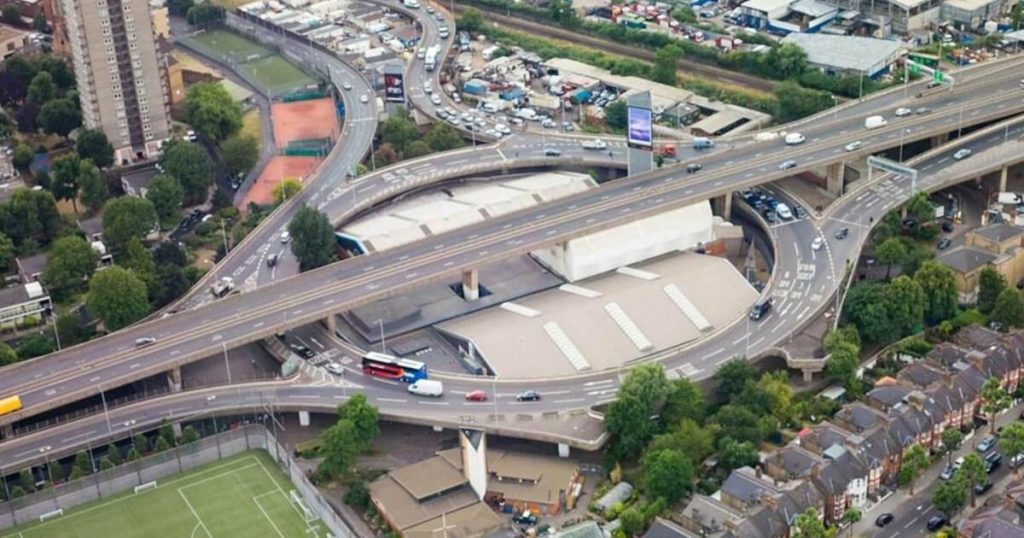The A40 Westway Closure: A Comprehensive Overview of Disruptions and Alternatives
The A40 Westway, a vital artery connecting central London to its western suburbs, is scheduled for a series of weekend closures spanning several months, starting January 3rd and concluding May 19th. Transport for London (TfL) has cited "essential safety work" as the reason for these closures, which will affect both eastbound and westbound traffic, though not concurrently. This extensive maintenance project necessitates a total of 36 days of closure, divided into 14 days for the eastbound carriageway and 22 days for the westbound carriageway. The closures will occur exclusively on weekends, from 10 pm on Friday to 5 am on Monday, to minimize disruption during peak weekday travel. However, TfL acknowledges that diversion routes and local roads are expected to experience significant congestion throughout the closure periods.
Closure Schedule and Affected Areas: A Detailed Breakdown
The closures are divided into two distinct phases. The first phase, affecting eastbound traffic, will run from January 3rd to February 17th. During this period, the A40 Westway will be closed eastbound between the A3320 Westway roundabout and the A40 Marylebone flyover every weekend. The second phase, affecting westbound traffic, will commence on February 21st and continue until May 19th. During this phase, the A40 Westway will be closed westbound between the Marylebone flyover junction and the A3320 Westway roundabout every weekend. It is important to note that there will be no closures on the bank holiday weekends of April 18th-21st, May 2nd-5th, and May 23rd-26th.
Navigating the Disruptions: Alternative Transportation and Affected Bus Routes
TfL anticipates significant congestion on surrounding roads and alternative routes during the closure periods. Consequently, they strongly encourage residents and commuters to utilize public transport, walking, or cycling whenever possible. However, the closures will also impact bus routes that typically utilize the A40 Westway. Several bus services will experience disruptions and potentially longer wait times between buses. The affected routes include the 7, 13, 23, 27, 28, 31, 70, 72, 94, 95, 148, 207/N207, 218, 220, 237, 266, 272, 283, 306, 316, 414, 440, C1, and SL8. Passengers are advised to check for updates and plan their journeys accordingly.
Minimizing Impact: TfL’s Strategy and Public Guidance
TfL has implemented a weekend-only closure schedule to minimize disruption to weekday commuters and businesses. Restricting the closures to weekends allows for uninterrupted traffic flow during the busiest periods of the week. While recognizing the unavoidable impact on local roads and alternative routes, TfL’s strategy aims to balance the necessary safety work with the need to maintain traffic flow as much as possible. The public is encouraged to cooperate by utilizing alternative modes of transportation, especially public transport, walking, and cycling, whenever feasible.
The Importance of the A40 Westway: A Key Transportation Link
The A40 Westway plays a crucial role in London’s transportation network, providing a vital link between central London and the western suburbs. Its elevated design allows for relatively unimpeded traffic flow, making it a heavily utilized route for commuters, businesses, and residents. The upcoming closures, while disruptive, are essential to ensure the long-term safety and functionality of this vital roadway. The maintenance work will contribute to the continued reliability and efficiency of the A40 Westway for years to come.
Staying Informed and Planning Ahead: Essential Advice for Commuters
To effectively navigate the disruptions caused by the A40 Westway closures, commuters and residents are strongly advised to stay informed about the closure schedule and alternative routes. Consulting TfL’s website and other official sources for updates and real-time information is crucial for planning journeys effectively. Utilizing alternative transportation options such as public transport, walking, and cycling, whenever possible, will help minimize congestion on surrounding roads. Checking for updates on affected bus routes is also essential for those who rely on public transportation. By staying informed and planning ahead, commuters can mitigate the impact of the closures and ensure smoother journeys.











